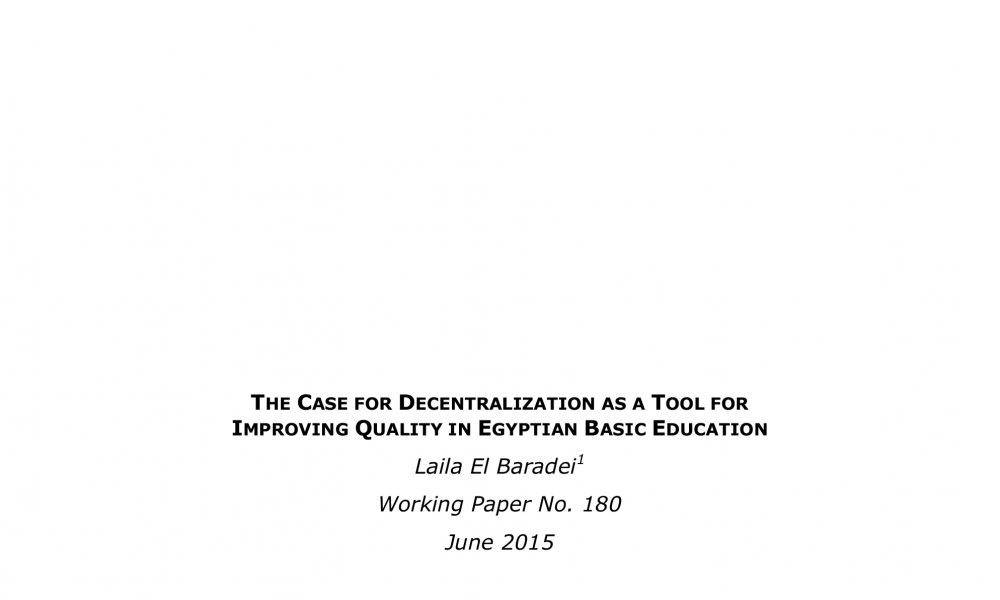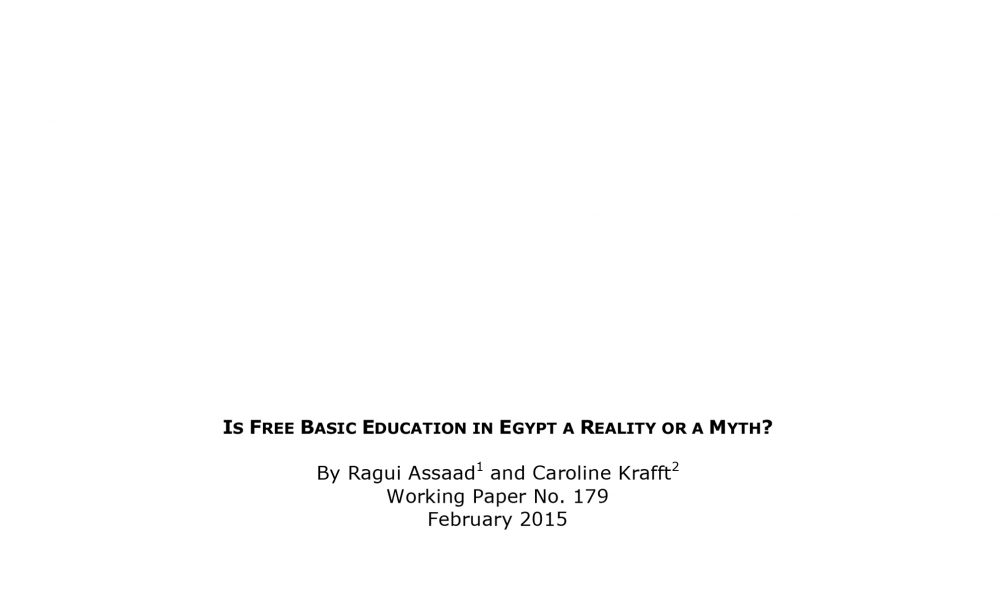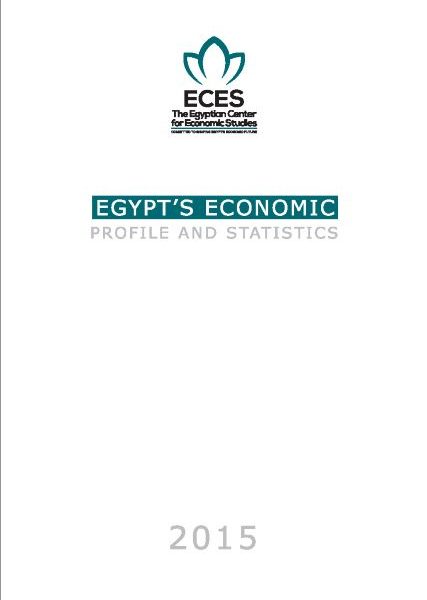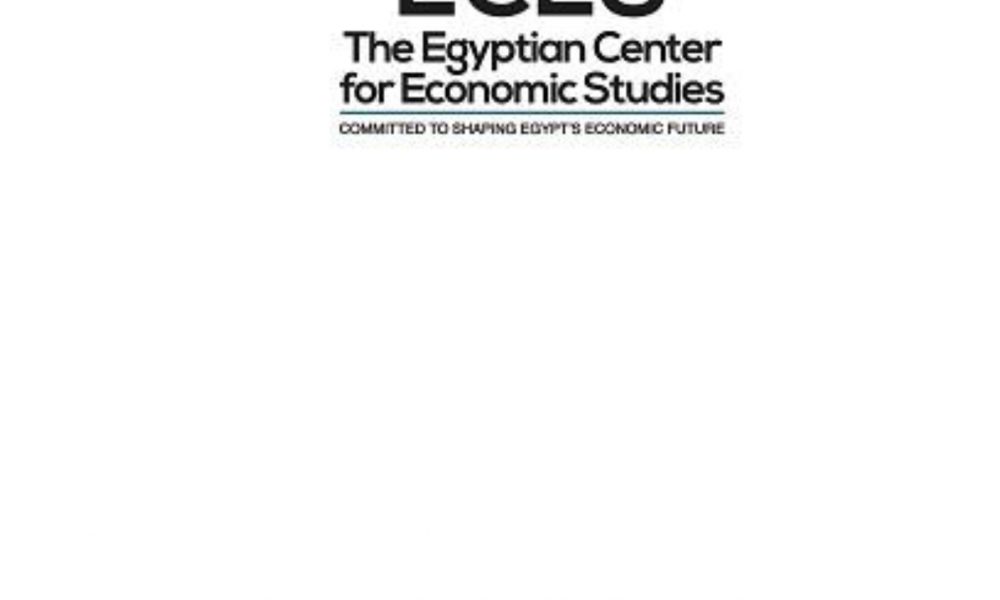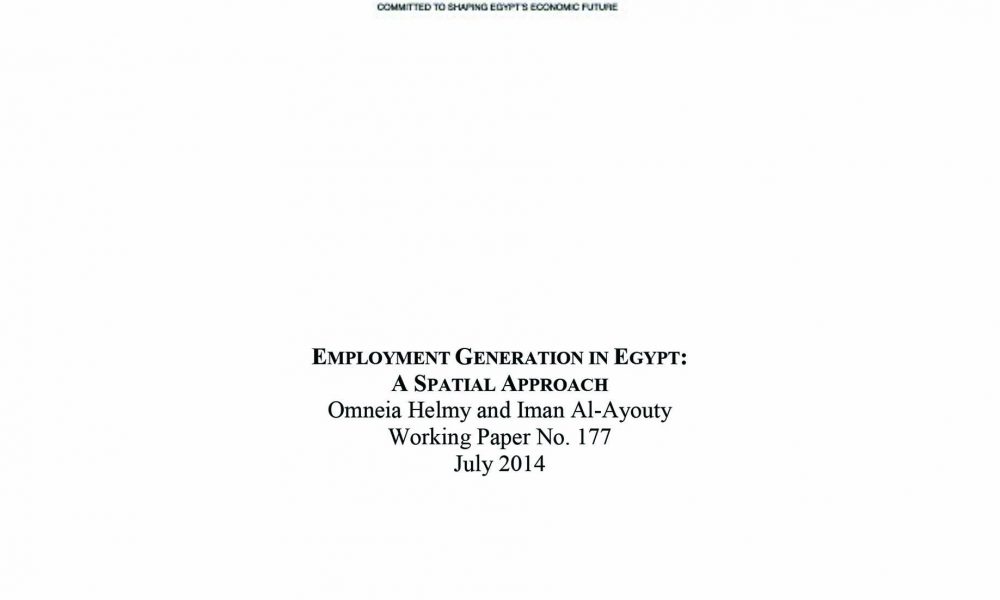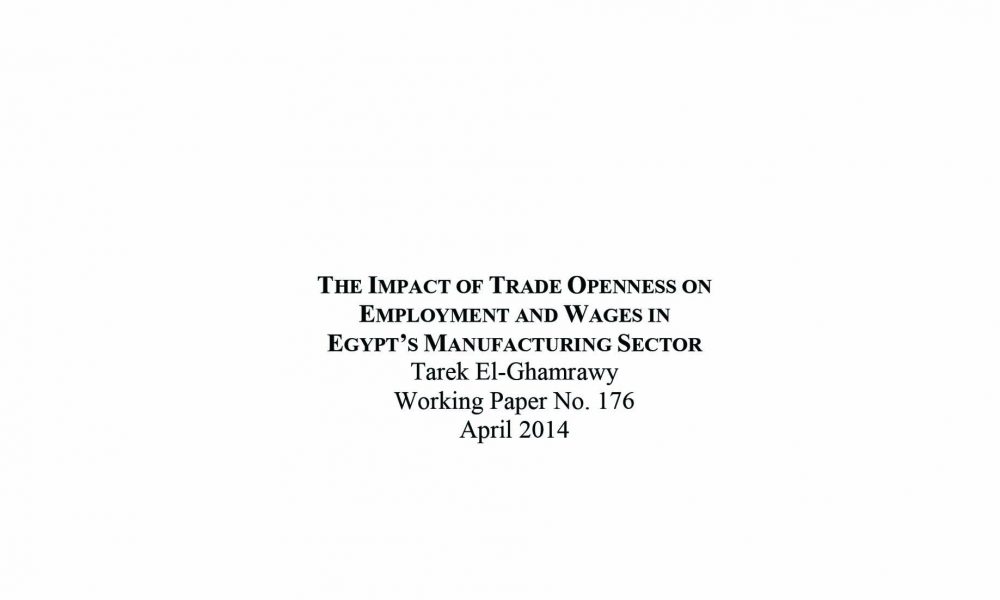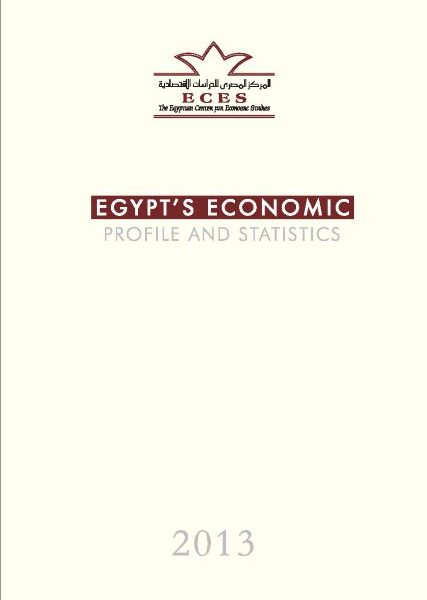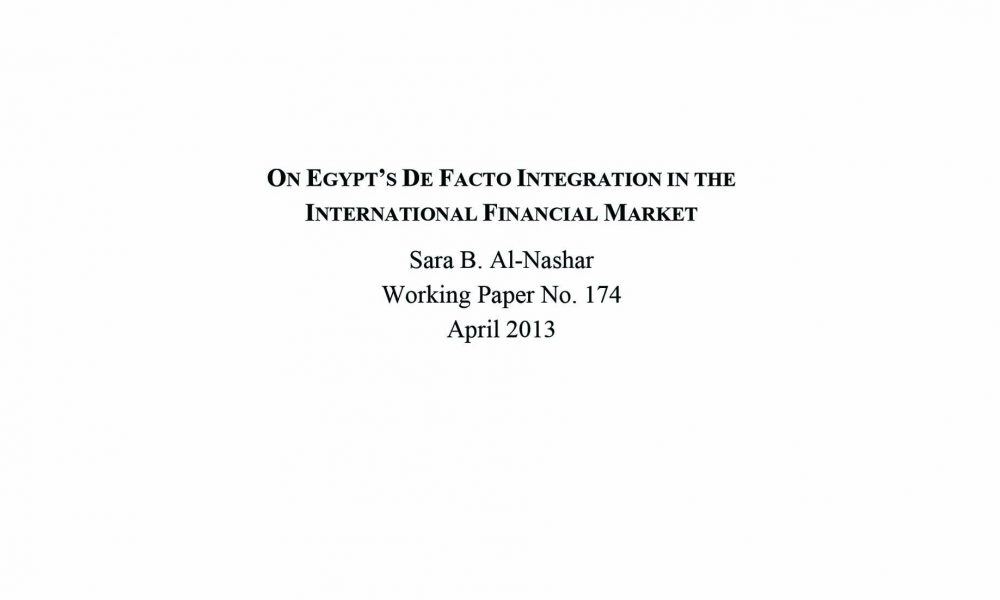Introduction: Education quality in Egypt is suffering. If we go by last year’s Global Competitiveness Report 2013/2014 where Egypt ranked 148 out of 148 countries in terms of quality of primary education, or by this year’s report 2014/2015 where it ranked 141 out of 144 countries (World Economic Forum 2013; 2014), the situation is very […]
Introduction: Free education—promised in the Egyptian constitution—is considered a fundamental right of every Egyptian. Over the past three decades, Egypt has made substantial progress in increasing access to education and raising educational attainment. Gross enrollment rates in primary education have increased from 67 percent in 1980 to 112 percent in 2010 (World Bank 2014). At […]
Intended mainly for investors and the business community, this annual publication provides summary data and information on the various aspects of the Egyptian economy.
Abstract: Egypt is facing a major challenge regarding the quality of its primary education. One of the crucial problems of the Egyptian education system is private tutoring. Private tutoring is not to be considered negative per se if it is based on the student’s or parents’ motivation to improve knowledge about the subject, even for […]
Abstract: Using a spatial approach, this study analyzes the distribution of Egypt’s labour force across its twenty seven governorates, and the rate of unemployment in each governorate by age, gender, and level of education. At the national level, Egypt’s most pressing unemployment problem is among the holders of intermediate education, followed by youth, male and […]
Abstract: Transparency and disclosure in the stock market is an important prerequisite for the proper functioning of market forces. Absent or insufficient information may lead to responses that do not reflect the principles of economic rationality, thus causing economic inefficiency and threatening economic growth. In this context, the paper addresses the importance and role of […]
Intended mainly for investors and the business community, this annual publication provides summary data and information on the various aspects of the Egyptian economy.

